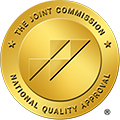Our addiction treatment programs provide outpatient detox and supportive therapeutic interventions to help safely quit using substances.
Xanax typically takes effect quickly, which is one reason it’s so commonly prescribed. However, the same qualities that make Xanax effective also make it highly addictive, especially when used outside of medical supervision or for long periods. Over time, the brain can become reliant on Xanax to manage anxiety or stress, leading to increased tolerance, dependence, and eventual addiction.
Signs and Symptoms of Xanax Addiction
- Taking higher doses than prescribed or running out of prescriptions early
- Doctor shopping or trying to obtain multiple prescriptions
- Withdrawal symptoms when not using the drug (e.g., anxiety, insomnia, irritability, tremors)
- Loss of interest in hobbies or relationships
- Poor concentration, memory issues, or slowed reaction times
- Frequent drowsiness or sedation
- Engaging in risky behavior (e.g., driving while under the influence)
- Using Xanax with alcohol or other drugs to intensify effects
Over time, Xanax addiction can interfere with every aspect of a person’s life, including their work, relationships, and mental health. Left untreated, it can lead to overdose or long-term cognitive issues.
Treatment Options for Xanax Addiction
The Detox Process for Benzodiazepines
We provide benzo detox for prescription medications such as Xanax. Benzodiazepine withdrawal can be dangerous without medical supervision. Suddenly stopping Xanax use may lead to severe symptoms such as seizures, hallucinations, or psychosis. That’s why medically supervised detox is the first step in treatment.
During detox:
- Medical professionals monitor vital signs
- Doses may be gradually tapered to reduce withdrawal risks
- Medications may be used to manage anxiety or insomnia
- Nutritional and emotional support are provided
This phase usually lasts 7–10 days but can vary based on the length and severity of Xanax use.
Therapy for Xanax Addiction
Once detox is complete, the next phase of treatment begins. Therapy addresses the root causes of addiction and helps individuals develop the tools they need to manage life without relying on Xanax.
Some of the most effective therapy modalities include:
- Cognitive Behavioral Therapy (CBT): Helps individuals identify negative thought patterns and develop healthier coping mechanisms.
- Dialectical Behavior Therapy (DBT): Useful for managing strong emotions and reducing self-destructive behaviors.
- Individual Therapy: One-on-one sessions enable personalized treatment and help providers address the root causes of addiction.
- Group Therapy: Encourages connection, accountability, and shared experiences.
- Family Therapy: Addresses relationship dynamics and supports loved ones in the recovery process.
- Holistic Therapies: Techniques such as mindfulness, yoga, and meditation can help manage anxiety without medication.
Treatment can take place in a variety of settings, including residential rehab, partial hospitalization programs (PHP), intensive outpatient programs (IOP), and aftercare services.
Relapse Prevention Strategies
Effective relapse prevention strategies include:
- Recognizing triggers and creating a plan to manage them
- Building a supportive community through recovery groups or sober peers
- Continuing therapy to maintain progress and address new challenges
- Developing healthy habits like regular sleep, nutrition, and exercise
- Using mindfulness or grounding techniques to manage anxiety
Many treatment programs in Atlanta offer aftercare planning and alumni support to help clients stay connected and supported long after they leave formal treatment. We offer recovery planning services to guide you through each stage of healing from Xanax misuse.
Helping a Loved One with Xanax Addiction
Here are steps you can take:
- Educate yourself about benzodiazepine addiction and treatment options
- Avoid enabling behaviors, like giving them money or ignoring the problem
- Encourage professional help—whether it’s starting with a therapist or reaching out to a treatment center
- Set healthy boundaries to protect your own well-being
- Consider staging an intervention, especially if your loved one is resistant to treatment
Many Atlanta-based treatment centers offer family support services, including counseling, education, and resources for navigating the recovery process together.
FAQ About Xanax Abuse
Mixing Xanax with other substances, especially alcohol, opioids, or other sedatives, can be extremely dangerous. Because all these substances depress the central nervous system, combining them can lead to:
- Respiratory depression (slowed or stopped breathing)
- Coma or loss of consciousness
- Increased risk of overdose and death
- Impaired judgment, increasing the likelihood of accidents or risky behavior
Even small doses of Xanax combined with alcohol can have unpredictable effects, which is why polydrug use is a leading cause of fatal overdoses.
Chronic Xanax abuse can have lasting effects on both mental and physical health. Long-term use may lead to:
- Cognitive impairments, such as memory loss and difficulty concentrating
- Emotional blunting or numbness
- Mood disorders, including depression or worsening anxiety
- Physical dependence, requiring continued use to avoid withdrawal
- Social and occupational decline, including job loss or strained relationships
Prolonged use also increases the risk of overdose and can make recovery more challenging due to tolerance and psychological dependence.
Withdrawing from alprazolam(Xanax) can be physically and emotionally challenging, especially if the drug has been used for a prolonged period or at high doses. Because Xanax is a fast-acting benzodiazepine, the body can become dependent on it relatively quickly. Once dependence sets in, stopping the drug suddenly can trigger uncomfortable and sometimes dangerous withdrawal symptoms.
Xanax withdrawal symptoms typically begin within 6 to 12 hours after the last dose and can vary in intensity based on how long and how much the person was using. Common symptoms include:
- Anxiety and panic attacks
- Insomnia or disturbed sleep
- Irritability and mood swings
- Restlessness or agitation
- Sweating and tremors
- Muscle pain or stiffness
- Headaches
- Nausea or vomiting
- Blurred vision
- Difficulty concentrating
Find Xanax Addiction Treatment in Atlanta Today
Reach out today to take the first step toward healing and reclaiming your life from Xanax addiction.
Interested in learning more about how treatment works or which level of care is right for you? Contact our admissions team today—we’ll help you get started!




